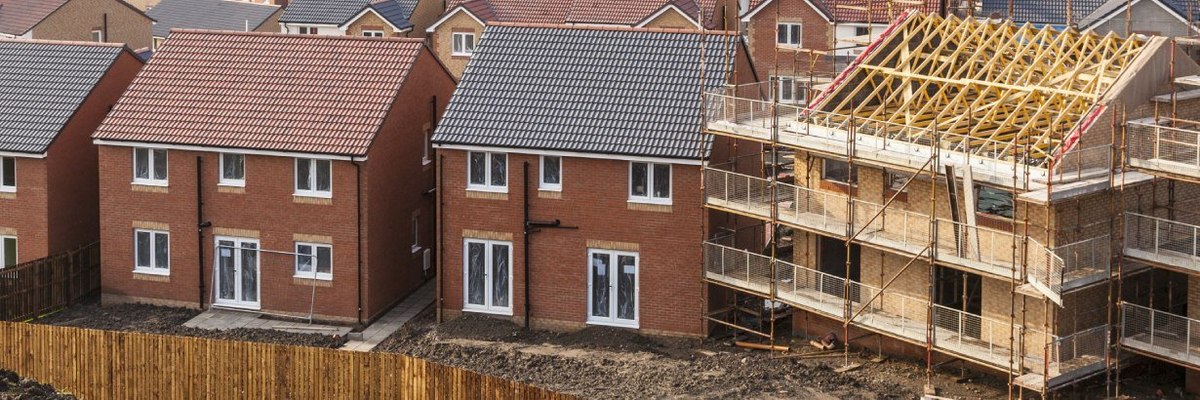Experts are forecasting that the housing market could return to a more “normal” state in 2022, following a frantic year. The public, on the other hand, predicts that prices will continue to rise with affordability being a key issue.
Some 16% of the public currently say ‘housing’ is currently among the top three issues facing the UK - a five-point increase from this time last year. This puts housing seventh, with health, economy, immigration, and the environment being the top issues. However, when asked in isolation whether housing is an issue in the UK at the moment, four-fifths (81%) of Britons think it is, including 35% who say it’s a major issue.
What do Britons think is negatively impacting housing?
YouGov asked whether several key factors are having a positive or negative impact on housing in the UK, including Brexit, the Covid-19 pandemic, levels of immigration, and government housing policies over the last few years. Three-in-five (60%) think government housing policies have had a negative impact on housing, as opposed to 4% who think the impact was positive. Next is immigration (53% to 5%), the Covid-19 pandemic (47% to 5%) and Brexit (29% to 6%).
However, 45% of the public think that Brexit has had no impact on housing in the UK, 32% say the same about the pandemic, 26% about immigration and 14% about government housing policies.
Noticeably, Conservative voters are much more likely to say that immigration (71%) has a negative impact on the issue than housing policies (48%), Covid-19 (39%), and Brexit (11%).
What are the issues with housing in the UK?
Of those that think housing is an issue in the UK currently, by far the largest number see the main issue as affordability (65%), followed by one in four (23%) who say it’s availability, and 3% who think housing quality.
Unsurprisingly, younger people are more likely to see affordability as the main issue, with 78% of 18-24 year olds thinking so, compared to 54% of those over 65. By contrast, older generations are more likely to see the availability of housing as the biggest problem (32% of over 65s to 10% of 18-24s).
YouGov tracker data also shows that since January 2021 there has been a steady increase in the public thinking house prices will go up in the next year - 56% now think so, compared to 37% this time last year and 33% the year before.
It has been well documented that house prices have climbed significantly this year, and continue to rise at the fastest rate in over a decade. Nearly half of people (46%) think government policies over the last few years have contributed to price rises, while 43% say the same of the coronavirus pandemic.
Conservative voters say the pandemic (41%), immigration (41%), and government policies (40%) have had a similar impact on house prices rising, while Labour voters are more likely to blame government policies over the last few years (58%).
When it comes to the causes of availability issues, immigration over the last few years (53%) and government policies (50%) are seen to decrease availability. Overall, Britons tend to think that Brexit has made no difference (48%).
Conservative voters are more likely than Labour voters to blame immigration (by 71% to 38%). Labour voters are more likely to blame government policies (63%), but two in five Conservative voters (42%) also believe their party’s policies have decreased the availability of housing in the UK.
Separate YouGov tracker data also asks what the public think are the main negative effects of immigration and increasing the pressure and demand for housing in now joint top with claiming benefits, at 43%, a 7-point increase from this time last year.
Which party would handle housing best?
Approval of the government’s handling of housing has been getting steadily worse since April 2020, with 64% thinking the government is handling housing badly and 20% well. As of August 2021, Conservative voters have started to consistently take an overall negative view as well, with 44% currently saying housing is being handled badly, and 40% saying well.
When it comes to which party Britons think would be the best at handling housing, Labour normally holds the upper hand, now totalling a 13-point lead over Conservatives (30% vs 17%). Confidence has dropped amongst Conservative voters, from 44% this October, to 35% in November and 38% now.








